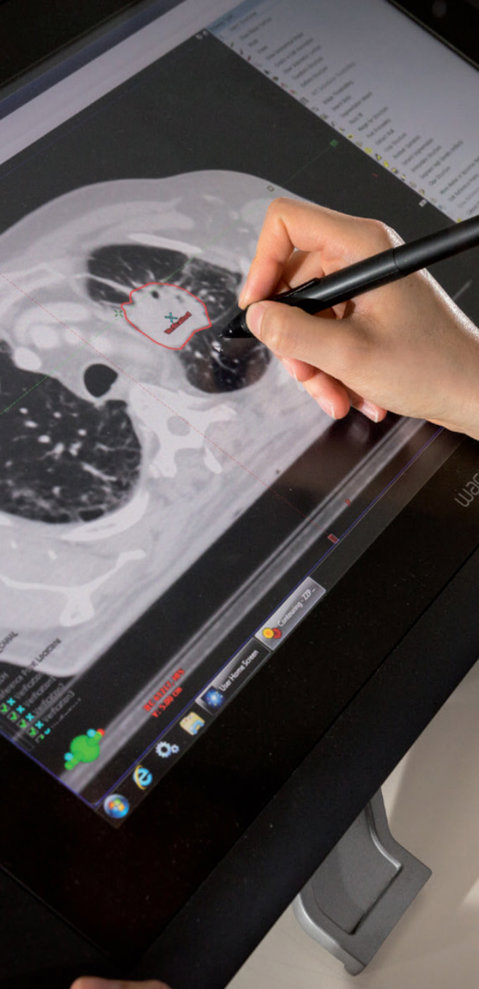

Clinical oncology
What does a clinical oncologist do?
Clinical oncology relates to any type of cancer treatment that is not surgery. With their unique expertise, clinical oncologists are responsible for prescribing treatment through systemic anticancer therapies like chemotherapy, as well as radiotherapy. In contrast, medical oncologists specialise solely in systemic anticancer therapies.
Cancer treatment is extremely varied and complex, which means clinical oncologists often work collaboratively with other healthcare professionals including nurses, radiographers, physicists and pharmacists.
Starting your clinical oncology career
Clinical oncology is a growing and richly rewarding area of medicine. Learn more about what a career in oncology looks like and how you can start now.

Advances in oncology
Clinical oncology treatment is revolutionising, with new types of radiotherapy, brachytherapy and immunotherapy coming into practice.
Learn more about global oncology developments and what the future might hold for the specialty.

